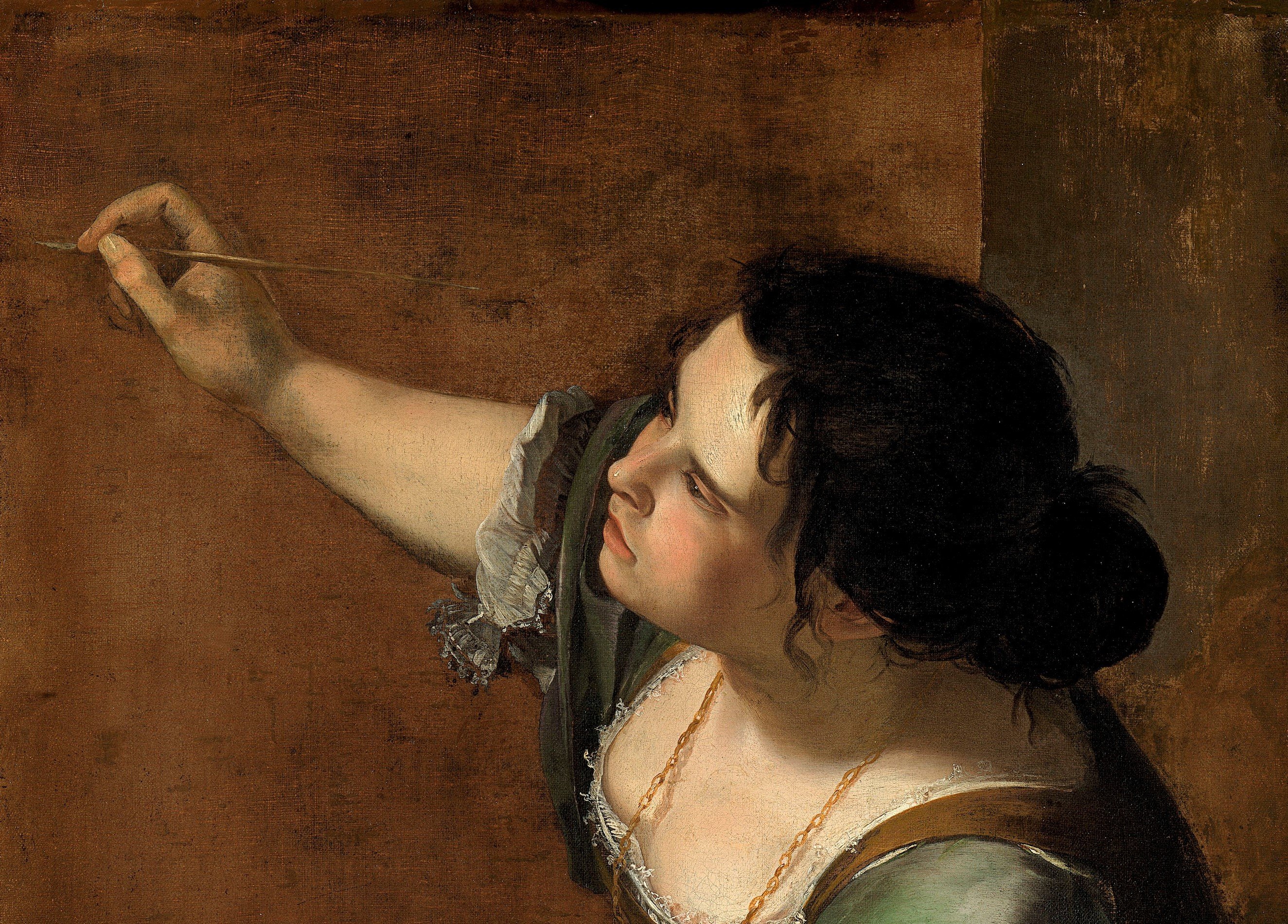
Women Artists
The lives and works of creative women
EMMA GAGGIOTTI RICHARDS (1825-1912)
A Self-Portrait
Signed and dated 1853RCIN 408920
Emma Gaggiotti was born in Rome but spent most of her youth in Ancona, where she was a pupil of Nicola Consorti. While there she met an Englishman, Alfred Bate Richards, and, upon their marriage, moved to London where her talent was quickly recognised by a number of influential patrons. In 1854 she returned to Italy, where she continued to paint landscapes and mythological scenes.
In 1850, Queen Victoria received the first of a series of four allegorical paintings by Richards (depicting Religion and the Three Theological Virtues, Faith, Hope, and Charity), commissioned by Prince Albert as gifts. It is likely that the Queen commissioned this self-portrait, presented to Prince Albert at Christmas 1853, having seen a version of it at the Royal Academy of Arts in 1851.
Richards depicts herself with the attributes of her profession: a palette, a mahlstick, and a selection of brushes. She is dressed in black, a colour not solely associated with mourning, but also favoured by working women. Although by this date it had become acceptable for men to fashion themselves as dishevelled Bohemians in their self-portraits, Richards, as a female artist and therefore on the periphery of artistic acceptability, firmly sets herself within the historic, and therefore safe, tradition of self-portraiture established by artists during the Renaissance. Her solemn, intense expression and twisted, three-quarter length pose bring to mind the great self-portraitists of the past and thereby associate her with a long and illustrious line of serious and learned artists.
Text adapted from Portrait of the Artist, London, 2016
Signed and dated: 'EMMA. G.R. / 1853'.
In 1850, Queen Victoria received the first of a series of four allegorical paintings by Richards (depicting Religion and the Three Theological Virtues, Faith, Hope, and Charity), commissioned by Prince Albert as gifts. It is likely that the Queen commissioned this self-portrait, presented to Prince Albert at Christmas 1853, having seen a version of it at the Royal Academy of Arts in 1851.
Richards depicts herself with the attributes of her profession: a palette, a mahlstick, and a selection of brushes. She is dressed in black, a colour not solely associated with mourning, but also favoured by working women. Although by this date it had become acceptable for men to fashion themselves as dishevelled Bohemians in their self-portraits, Richards, as a female artist and therefore on the periphery of artistic acceptability, firmly sets herself within the historic, and therefore safe, tradition of self-portraiture established by artists during the Renaissance. Her solemn, intense expression and twisted, three-quarter length pose bring to mind the great self-portraitists of the past and thereby associate her with a long and illustrious line of serious and learned artists.
Text adapted from Portrait of the Artist, London, 2016
Signed and dated: 'EMMA. G.R. / 1853'.







